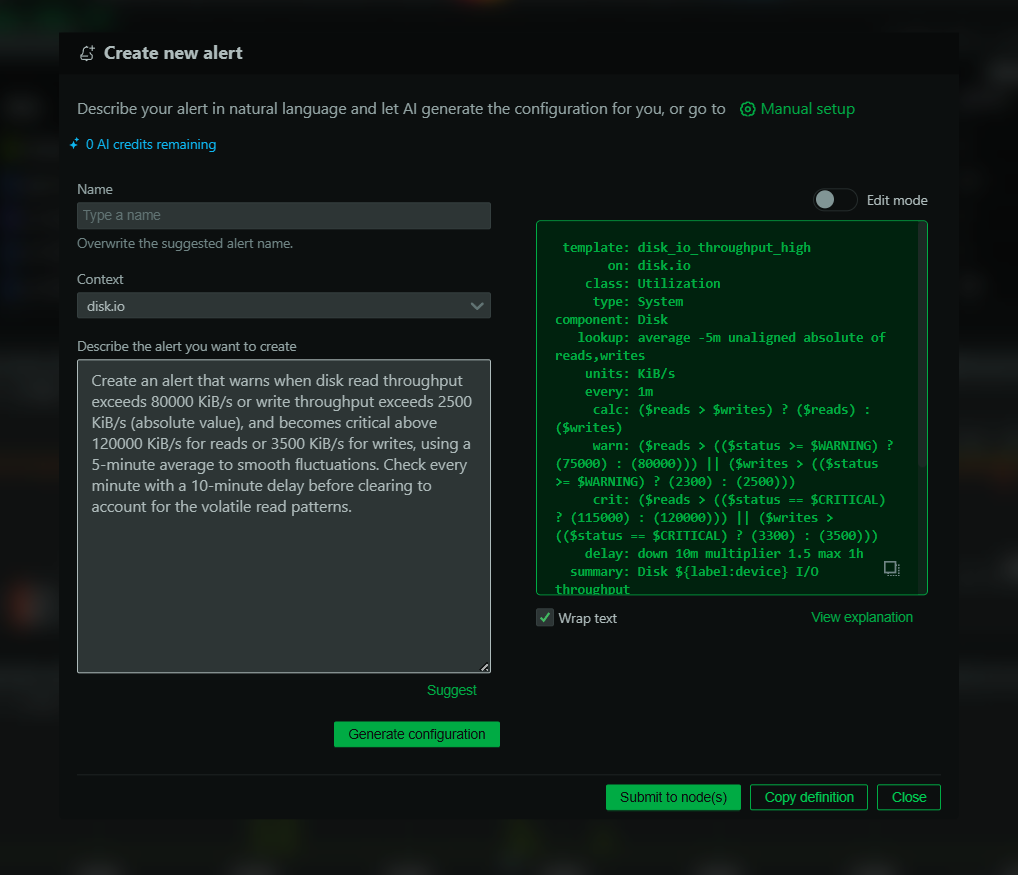It’s a scenario that keeps DevOps and SRE teams up at night: your application logs fill with connection errors, services start failing, and you realize a critical component can’t find the database it depends on. The culprit? A breakdown in your service discovery mechanism. For many, that mechanism is HashiCorp Consul, the backbone of modern microservice architectures. When Consul falters, your entire ecosystem can become unstable.
Understanding how to diagnose these failures is crucial. The problem often lies deep within the operational layers—agent communication issues, misconfigured health checks, or disruptions in the gossip protocol that maintains cluster state. In this guide, we’ll dissect the most common causes of Consul service discovery failures, providing you with the tools to troubleshoot and resolve them. More importantly, we’ll show you how to shift from a reactive, fire-fighting mode to a proactive one, using comprehensive monitoring to build a truly resilient Consul deployment.
The Tangled Web of Agent Communication
At its core, a Consul cluster is a network of agents communicating with each other. Every node runs a Consul agent, either in client or server mode. Clients are lightweight and forward requests to servers, while servers are the authoritative source of truth, maintaining the cluster’s state. When this communication breaks down, the entire system is at risk.
RPC Failures: When Agents Can’t Talk
Consul clients talk to servers using Remote Procedure Calls (RPC). This is how a service registers itself or queries for the location of another service. If a client agent cannot reach a server, it’s effectively isolated from the cluster.
You might see errors like “Failed to join” during agent startup or “No path to host” in your logs. These almost always point to a network connectivity problem. To resolve this, you need to verify that:
- Firewall Rules are Correct: Consul requires several ports to function. Ensure that traffic is allowed on the necessary ports between your nodes. The key ones are:
- 8300 (TCP): For server-to-server RPC.
- 8301 (TCP/UDP): For LAN gossip between all agents.
- 8302 (TCP/UDP): For WAN gossip between servers in different datacenters.
- 8500/8501 (TCP): For the HTTP API and UI.
- 8600 (TCP/UDP): For DNS queries.
- Bind and Retry-Join Addresses are Accurate: The
bind_addrin your agent’s configuration tells Consul which IP address to listen on. If this is misconfigured (e.g., set to127.0.0.1when it needs to be accessible on a public interface), other agents won’t be able to reach it. Similarly, theretry-joinconfiguration should point to the correct, reachable addresses of your server agents.
A quick way to check if an agent has successfully joined the cluster is the consul members command. If the node you’re troubleshooting doesn’t appear in this list, it has a fundamental communication problem.
The Gossip Protocol (Serf) and Network Partitions
Consul uses a gossip protocol, managed by a library called Serf, to handle cluster membership, failure detection, and event broadcasting. Every agent participates in this gossip “pool,” constantly exchanging information about which nodes are alive. This is highly efficient but sensitive to network health, particularly UDP packet loss.
A network partition occurs when a subset of nodes can no longer communicate with the rest of the cluster. In the context of Consul’s gossip, this means UDP packets on port 8301 (for LAN) are being dropped. Symptoms include:
- Nodes randomly appearing and disappearing from the
consul memberslist. - Logs filled with “Failed to send” or “No path to host” errors related to the Serf protocol.
- Services on an affected node being marked as unhealthy because the node itself is considered “failed” by the rest of the cluster.
Troubleshooting gossip issues involves verifying UDP connectivity. You can use tools like netcat or iperf to test if UDP packets can travel between the affected nodes on the correct port.
When Health Checks Lie: The Unreliability of Unhealthy Services
Consul’s service discovery is only as reliable as its health checks. These checks determine whether a specific service instance is healthy enough to receive traffic. If a service fails its health check, Consul removes it from the list of available services returned by DNS and API queries.
Failing Health Checks and Flapping Services
Consul offers several types of health checks, including script, HTTP, TCP, and TTL. Failures can happen for a few reasons:
- The Application is Genuinely Unhealthy: The service has crashed, is returning 5xx errors, or is too slow to respond within the configured timeout.
- The Health Check is Misconfigured: The check is pointing to the wrong endpoint, using an invalid script path, or has an overly aggressive timeout that doesn’t account for normal application latency.
- The Network is the Problem: The Consul client agent cannot reach the application’s health check endpoint due to local firewall rules on the host.
A particularly tricky issue is a “flapping” service—one that rapidly alternates between passing and failing its health checks. This is often caused by resource contention. If the host running the service is experiencing high CPU or memory usage, the health check response may be delayed just enough to trigger a timeout, even if the application is fundamentally functional.
The Critical Node Health Check
Beyond individual service checks, Consul monitors the health of the node itself. This is done via the gossip protocol. If an agent fails to respond to gossip probes, the rest of the cluster marks the entire node as failed. When a node fails, all services registered on that node are automatically considered critical and removed from service discovery pools. This means a single network issue with the gossip protocol can take down all services on a host, even if the services themselves are perfectly healthy.
Decoding Cluster-Level Problems: Raft and Leadership
While client agents handle local tasks, the server agents are responsible for maintaining the cluster’s state. They use the Raft consensus protocol to ensure that all servers have a consistent, replicated log of all changes, such as service registrations or KV store updates.
No Leader Elected: The Quorum Crisis
For the cluster to function, the servers must elect a single leader. The leader is the only server that can process write operations. An election can only succeed if there is a quorum of available servers, which is defined as (N/2) + 1, where N is the total number of servers.
- A 3-server cluster requires at least 2 servers to be healthy to maintain quorum. It can tolerate 1 failure.
- A 5-server cluster requires at least 3 servers. It can tolerate 2 failures.
If you lose too many servers, the remaining ones cannot form a quorum, and no leader can be elected. The cluster becomes unavailable for any write operations. API requests will fail, and logs will contain messages like “No cluster leader.” You can check the status of the Raft peers with the consul operator raft list-peers command.
ACLs and Token Troubles
Sometimes, an issue that looks like a network or health check failure is actually a permissions problem. If Consul’s Access Control List (ACL) system is enabled, every action requires a token with the appropriate permissions. If a Consul agent has an invalid, expired, or insufficiently permissioned ACL token, it won’t be able to perform its duties.
Common symptoms include “Permission denied” errors in the logs when an agent tries to register a service or update a health check. A frequent mistake is configuring a client agent with a token that lacks node:write and service:write permissions for itself. Always check the agent’s configuration and the policies attached to its token.
Proactive Consul Monitoring with Netdata
Reactive troubleshooting is essential, but a superior strategy is to prevent failures before they impact production. This requires deep, real-time visibility into your Consul cluster and the underlying infrastructure. This is precisely what Netdata is built for.
Real-Time Visibility into Consul Internals
Netdata’s Consul collector automatically discovers and monitors your cluster with zero configuration. It provides immediate access to hundreds of critical metrics that can preemptively warn you of trouble:
consul.raft.peers: Tracks the number of Raft peers. Set an alert to trigger if this number drops below your quorum threshold.consul.serf.lan.members: Monitors the number of members in the LAN gossip pool. A sudden drop is a clear sign of a network partition.consul.health.services.critical: A direct count of services in a critical state. A spike in this metric is a powerful signal for an immediate investigation.consul.rpc.server.request_error: Tracks errors in server RPCs, pointing to communication issues.
Correlating Consul Issues with System Performance
The real power of Netdata is its ability to correlate application metrics with system metrics on the same dashboard. A service flapping between healthy and unhealthy might not be the application’s fault. With Netdata, you can see a spike in consul.health.services.critical and instantly correlate it with a CPU spike, memory exhaustion, or a surge in network dropped packets on the same host. This contextual insight immediately points to resource contention as the root cause, something you would miss by looking at Consul logs alone.
Building a More Resilient Consul Cluster
Consul service discovery failures are complex, often stemming from subtle interactions between network connectivity, health check configurations, and cluster consensus. By methodically investigating agent communication, the gossip protocol, and the Raft state, you can effectively diagnose and resolve these issues.
However, the ultimate goal is to move beyond fixing what’s broken. A truly resilient system is one that you can observe and understand in real-time. By implementing a comprehensive monitoring solution like Netdata, you gain the foresight to detect anomalies and fix potential problems before they escalate into outages.
Ready to transform your Consul monitoring from reactive to proactive? Get started with Netdata today and build a more reliable service discovery platform.









